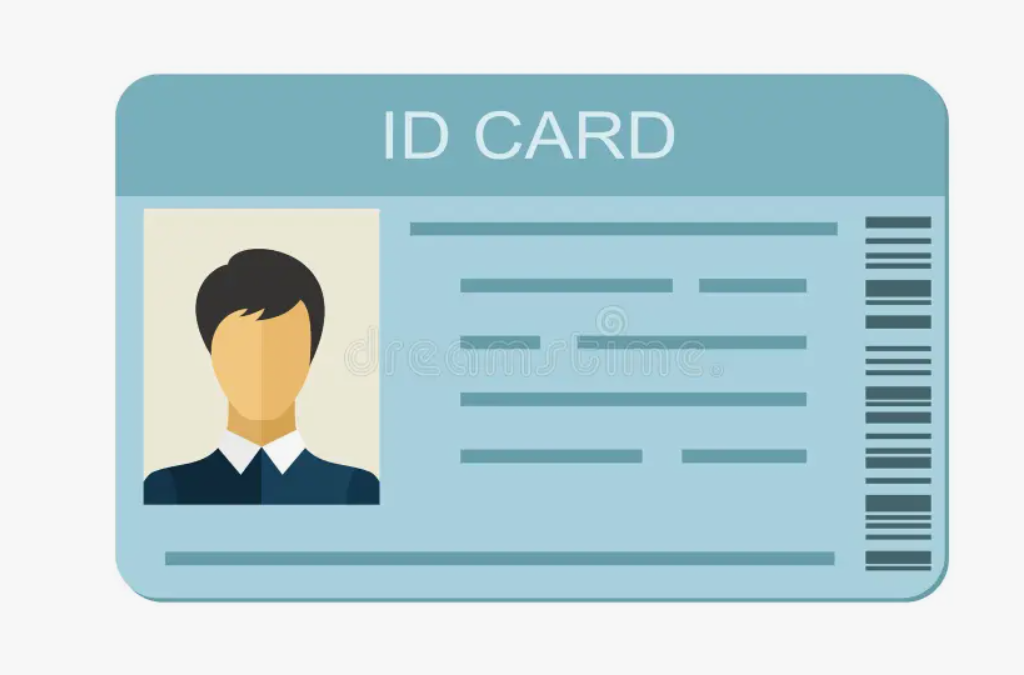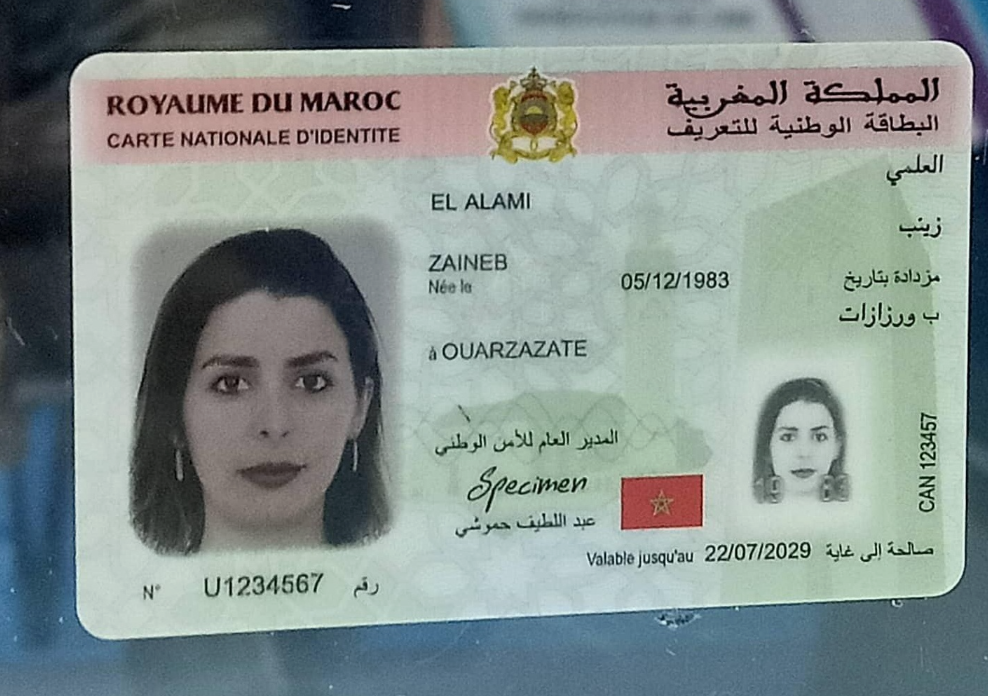Generating UK health service numbers is a crucial process in the healthcare system of the United Kingdom. These unique identifiers are assigned to individuals for healthcare purposes, ensuring accurate and efficient delivery of medical services. The importance of UK health service numbers cannot be overstated, as they enable access to medical records, track patients’ health history, and contribute to effective healthcare management.
The process of generating a UK health service number involves registration with the National Health Service (NHS) and providing necessary identification and personal information. To obtain a UK health service number, individuals need to provide proof of identity, address, and eligibility for NHS services. This ensures that the healthcare system operates smoothly and efficiently, providing the right care to the right individuals. An NHS number generator can facilitate this process, streamlining the issuance of identification numbers within the established guidelines.
The registration process for UK health service numbers includes filling out an application form, attending an appointment, and providing necessary documents to verify personal information. This ensures that the information associated with the health service number is accurate and up to date, enabling healthcare providers to deliver appropriate treatments and ensure accurate patient identification and record-keeping.
UK health service numbers play a vital role in the healthcare system, facilitating efficient healthcare management, enabling access to appropriate treatments, and contributing to accurate patient identification and record-keeping. These numbers are essential for the smooth functioning of the healthcare system and ensuring the well-being of individuals in the United Kingdom.
What are UK Health Service Numbers?

UK health service numbers are unique identifiers assigned to individuals in the United Kingdom for healthcare purposes. These numbers play a crucial role in ensuring accurate and efficient healthcare delivery, as they enable healthcare providers to access medical records and track patients’ health history. Each individual is assigned a unique health service number, which serves as a key identifier in the healthcare system.
Why are UK Health Service Numbers Important?
UK health service numbers are vital for the efficient functioning of the healthcare system in the United Kingdom. These unique identifiers play a crucial role in ensuring accurate and efficient healthcare delivery, enabling access to medical records, and tracking patients’ health history.
One of the key benefits of UK health service numbers is that they facilitate accurate patient identification. With a unique identifier assigned to each individual, healthcare providers can easily access and retrieve medical records, ensuring that the right treatment is provided to the right patient. This not only saves time but also minimizes the risk of errors and improves patient safety.
In addition to accurate patient identification, UK health service numbers also contribute to the efficient delivery of healthcare services. By having a centralized system that tracks patients’ health history, healthcare providers can have a comprehensive view of a patient’s medical background, including previous diagnoses, treatments, and medications. This enables better coordination of care and ensures that patients receive appropriate and timely interventions.
Moreover, UK health service numbers are essential for population health management and research purposes. By analyzing anonymized data from health service numbers, researchers can gain insights into disease patterns, identify risk factors, and develop evidence-based strategies to improve public health.
Overall, UK health service numbers play a vital role in ensuring accurate and efficient healthcare delivery, enabling access to medical records, and tracking patients’ health history. They are an essential component of the healthcare system, contributing to improved patient care, population health management, and medical research.
How to Generate a UK Health Service Number?
Generating a UK health service number entails a registration process with the National Health Service (NHS), requiring the submission of essential identification and personal information. The initial step involves assembling the necessary documents, such as proof of identity, address, and eligibility for NHS services. These documents may encompass a valid passport or driver’s license, utility bills or bank statements, and evidence of residency or immigration status. An NHS id number is subsequently assigned during this process, ensuring proper identification within the healthcare system.
Once you have gathered the necessary documents, you can begin the registration process. This usually involves filling out an application form, either online or in person at a local NHS office. The form will ask for your personal information, such as your full name, date of birth, and contact details. You may also be required to provide information about your current healthcare provider, if applicable.
After submitting the application form, you will need to attend an appointment with the NHS to verify your identity and provide the necessary documents. During this appointment, a healthcare professional will review your application and ensure that all the information provided is accurate and complete. They may also take your photograph and collect your biometric data, such as fingerprints or iris scans, for identification purposes.
Once your identity and eligibility have been verified, the NHS will assign you a unique health service number. This number will serve as your unique identifier within the healthcare system and will be used to access medical services, track your health history, and ensure accurate and efficient healthcare delivery.
In summary, generating a UK health service number involves a registration process with the NHS, where you will need to provide necessary identification and personal information. This process ensures that each individual has a unique identifier for healthcare purposes, allowing for accurate record-keeping and efficient healthcare management.
Requirements for Generating a UK Health Service Number
To generate a UK health service number, individuals must meet certain requirements and provide necessary documentation. These requirements include proof of identity, proof of address, and proof of eligibility for NHS services. The National Health Service (NHS) requires individuals to provide valid identification documents, such as a passport or driver’s license, to verify their identity. Additionally, individuals need to provide proof of their current address, which can be a utility bill or a bank statement. Lastly, individuals must demonstrate their eligibility for NHS services, which can be done by providing relevant documentation, such as a visa or residence permit.
Registration Process for UK Health Service Numbers
The registration process for UK Health Service Numbers is a straightforward and essential step in ensuring access to healthcare services. To begin the process, individuals are required to fill out an application form, which can be obtained from their local National Health Service (NHS) office or downloaded online from the official NHS website. The application form collects personal information such as name, address, date of birth, and contact details.
Once the application form is completed, individuals will need to schedule an appointment at their local NHS office. During this appointment, they will be required to provide necessary documents to verify their identity, address, and eligibility for NHS services. These documents may include a valid passport or national identity card, proof of address such as a utility bill or bank statement, and proof of eligibility such as a visa or residency permit.
It is important to bring original copies of these documents, as well as any additional documents that may be requested by the NHS office. The staff will carefully review the documents to ensure their authenticity and accuracy. Once the verification process is complete, individuals will be issued their unique UK Health Service Number, which will enable them to access healthcare services and have their medical records securely stored within the NHS system.
Benefits and Uses of UK Health Service Numbers
UK health service numbers play a vital role in the healthcare system, offering numerous benefits and uses. One of the primary advantages is that they facilitate efficient healthcare management. By assigning a unique identifier to each individual, health service providers can easily access and track their medical records. This streamlined approach ensures that patients receive appropriate treatments and care based on their specific health needs.
In addition, UK health service numbers enable accurate patient identification and record-keeping. With a unique identifier, healthcare professionals can quickly and accurately identify patients, reducing the risk of errors and ensuring that the right treatments and medications are administered. This not only improves patient safety but also contributes to better overall healthcare outcomes.
Furthermore, these numbers enable individuals to access a wide range of healthcare services. Whether it’s scheduling appointments, receiving prescriptions, or accessing specialized treatments, UK health service numbers provide individuals with the necessary access to the healthcare system. This accessibility ensures that everyone has equal opportunities to receive the care they need.
Overall, UK health service numbers are essential for efficient healthcare delivery. They streamline processes, enable accurate patient identification, and contribute to better healthcare outcomes. By ensuring that individuals have access to appropriate treatments and care, these numbers play a crucial role in promoting the well-being of the population.
Protecting the Confidentiality of UK Health Service Numbers

To ensure the privacy and data security of UK health service numbers, stringent measures have been put in place. These measures aim to protect the confidentiality of the numbers and prevent any unauthorized access or misuse. The National Health Service (NHS) recognizes the importance of safeguarding sensitive information and has implemented robust security protocols.
One of the key measures is the adherence to data protection laws and regulations, including the General Data Protection Regulation (GDPR). These laws ensure that individuals’ personal information is handled and stored securely, with strict guidelines on data access, storage, and sharing.
The NHS also employs various technical and administrative security measures to protect UK health service numbers. These measures include encryption, which ensures that the numbers are stored in a secure and unreadable format. Access controls are implemented to restrict unauthorized personnel from accessing the numbers, and regular audits are conducted to monitor and identify any potential security breaches.
Furthermore, the NHS has a comprehensive training program in place to educate its staff on the importance of data security and confidentiality. This ensures that healthcare professionals are aware of their responsibilities in protecting the privacy of UK health service numbers and are equipped with the necessary knowledge to handle sensitive information securely.
In summary, protecting the confidentiality of UK health service numbers is of utmost importance. The NHS takes this responsibility seriously and has implemented strict measures to ensure privacy, data security, and prevent unauthorized access or misuse of these numbers.
Data Protection Laws and Regulations
Data Protection Laws and Regulations
When it comes to UK health service numbers, the protection of individuals’ personal information is of utmost importance. That’s why these numbers are subject to strict data protection laws and regulations, including the General Data Protection Regulation (GDPR).
The GDPR is a comprehensive set of regulations that governs the processing and protection of personal data within the European Union, including the United Kingdom. It aims to ensure that individuals have control over their personal information and that organizations handle it responsibly and securely.
Under the GDPR, organizations that collect and process UK health service numbers must adhere to several key principles:
- Lawfulness, fairness, and transparency: Organizations must have a valid legal basis for processing personal data, and individuals must be informed about how their data will be used.
- Purpose limitation: Personal data should only be collected for specific, explicit, and legitimate purposes.
- Data minimization: Organizations should only collect and retain the minimum amount of personal data necessary for the intended purpose.
- Accuracy: Personal data should be accurate, and organizations should take steps to keep it up to date.
- Storage limitation: Personal data should not be kept for longer than necessary.
- Integrity and confidentiality: Organizations must implement appropriate security measures to protect personal data from unauthorized access, loss, or destruction.
Non-compliance with the GDPR can result in significant fines and reputational damage for organizations. Therefore, it is crucial for healthcare providers and other entities handling UK health service numbers to understand and comply with these data protection laws and regulations.
By adhering to the GDPR and other relevant data protection regulations, the confidentiality and security of UK health service numbers can be effectively safeguarded, ensuring the privacy and trust of individuals in the healthcare system.
Security Measures for UK Health Service Numbers
The security of UK health service numbers is of utmost importance to the National Health Service (NHS). To ensure the protection of these numbers, the NHS implements a range of robust security measures. These measures include encryption, access controls, and regular audits.
Encryption plays a crucial role in safeguarding UK health service numbers. It involves converting the data into a code that can only be accessed with the appropriate decryption key. By encrypting the numbers, the NHS ensures that even if there is a breach, the information remains secure and unreadable to unauthorized individuals.
In addition to encryption, the NHS also employs access controls. These controls restrict access to UK health service numbers to authorized personnel only. By implementing strict access controls, the NHS minimizes the risk of unauthorized disclosure or misuse of the numbers.
Furthermore, regular audits are conducted to monitor the security of UK health service numbers. These audits help identify any potential vulnerabilities or breaches in the system and allow for prompt remedial action to be taken. By regularly reviewing and assessing the security measures in place, the NHS ensures that the integrity and confidentiality of UK health service numbers are maintained.
In conclusion, the NHS takes the security of UK health service numbers seriously. Through the implementation of encryption, access controls, and regular audits, the NHS strives to protect these numbers from breaches or unauthorized disclosure, ensuring the privacy and confidentiality of individuals’ health information.
Generating UK Health Service Numbers
UK health service numbers are unique identifiers assigned to individuals in the United Kingdom for healthcare purposes. These numbers play a crucial role in ensuring accurate and efficient healthcare delivery, enabling access to medical records, and tracking patients’ health history.
To generate a UK health service number, individuals need to provide proof of identity, address, and eligibility for NHS services. The registration process includes filling out an application form, attending an appointment, and providing necessary documents to verify personal information.
Once generated, UK health service numbers offer numerous benefits and uses. They facilitate efficient healthcare management, enabling healthcare providers to access appropriate treatments and contribute to accurate patient identification and record-keeping.
It is essential to protect the confidentiality of UK health service numbers to ensure privacy and data security. Strict measures, including data protection laws and regulations such as the General Data Protection Regulation (GDPR), are in place to safeguard individuals’ personal information. The NHS implements robust security measures, such as encryption, access controls, and regular audits, to prevent breaches or unauthorized disclosure of UK health service numbers.
In summary, UK health service numbers are vital for the healthcare system in the United Kingdom. They enable accurate and efficient healthcare delivery, provide access to medical records, and contribute to patient identification and record-keeping. Protecting the confidentiality of these numbers is crucial, and strict measures are in place to ensure privacy and data security.
For assistance with generating national identification numbers, you can visit https://nationalidnumber.com. This specialized tool or software is designed to create unique national identification numbers for individuals within specific countries, including the United Kingdom. It follows the specific format and rules set by the issuing authority of the country to ensure the integrity and reliability of the identification system.




